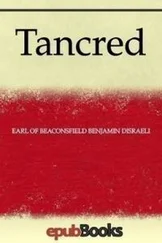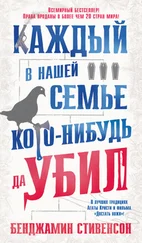Бенджамин Дизраэли - Coningsby
Здесь есть возможность читать онлайн «Бенджамин Дизраэли - Coningsby» весь текст электронной книги совершенно бесплатно (целиком полную версию без сокращений). В некоторых случаях можно слушать аудио, скачать через торрент в формате fb2 и присутствует краткое содержание. Год выпуска: 2014, Издательство: epubBooks Classics, Жанр: Классическая проза, на английском языке. Описание произведения, (предисловие) а так же отзывы посетителей доступны на портале библиотеки ЛибКат.
- Название:Coningsby
- Автор:
- Издательство:epubBooks Classics
- Жанр:
- Год:2014
- ISBN:нет данных
- Рейтинг книги:4 / 5. Голосов: 1
-
Избранное:Добавить в избранное
- Отзывы:
-
Ваша оценка:
- 80
- 1
- 2
- 3
- 4
- 5
Coningsby: краткое содержание, описание и аннотация
Предлагаем к чтению аннотацию, описание, краткое содержание или предисловие (зависит от того, что написал сам автор книги «Coningsby»). Если вы не нашли необходимую информацию о книге — напишите в комментариях, мы постараемся отыскать её.
Coningsby — читать онлайн бесплатно полную книгу (весь текст) целиком
Ниже представлен текст книги, разбитый по страницам. Система сохранения места последней прочитанной страницы, позволяет с удобством читать онлайн бесплатно книгу «Coningsby», без необходимости каждый раз заново искать на чём Вы остановились. Поставьте закладку, и сможете в любой момент перейти на страницу, на которой закончили чтение.
Интервал:
Закладка:
Sir Robert Peel, who had escaped from Lord Liverpool, escaped from Mr. Canning, escaped even from the Duke of Wellington in 1832, was at length caught in 1834; the victim of ceaseless intriguers, who neither comprehended his position, nor that of their country.
Chapter II.
Beaumanoir was one of those Palladian palaces, vast and ornate, such as the genius of Kent and Campbell delighted in at the beginning of the eighteenth century. Placed on a noble elevation, yet screened from the northern blast, its sumptuous front, connected with its far–spreading wings by Corinthian colonnades, was the boast and pride of the midland counties. The surrounding gardens, equalling in extent the size of ordinary parks, were crowded with temples dedicated to abstract virtues and to departed friends. Occasionally a triumphal arch celebrated a general whom the family still esteemed a hero; and sometimes a votive column commemorated the great statesman who had advanced the family a step in the peerage. Beyond the limits of this pleasance the hart and hind wandered in a wilderness abounding in ferny coverts and green and stately trees.
The noble proprietor of this demesne had many of the virtues of his class; a few of their failings. He had that public spirit which became his station. He was not one of those who avoided the exertions and the sacrifices which should be inseparable from high position, by the hollow pretext of a taste for privacy, and a devotion to domestic joys. He was munificent, tender, and bounteous to the poor, and loved a flowing hospitality. A keen sportsman, he was not untinctured by letters, and had indeed a cultivated taste for the fine arts. Though an ardent politician, he was tolerant to adverse opinions, and full of amenity to his opponents. A firm supporter of the corn–laws, he never refused a lease. Notwithstanding there ran through his whole demeanour and the habit of his mind, a vein of native simplicity that was full of charm, his manner was finished. He never offended any one's self–love. His good breeding, indeed, sprang from the only sure source of gentle manners, a kind heart. To have pained others would have pained himself. Perhaps, too, this noble sympathy may have been in some degree prompted by the ancient blood in his veins, an accident of lineage rather rare with the English nobility. One could hardly praise him for the strong affections that bound him to his hearth, for fortune had given him the most pleasing family in the world; but, above all, a peerless wife.
The Duchess was one of those women who are the delight of existence. She was sprung from a house not inferior to that with which she had blended, and was gifted with that rare beauty which time ever spares, so that she seemed now only the elder sister of her own beautiful daughters. She, too, was distinguished by that perfect good breeding which is the result of nature and not of education: for it may be found in a cottage, and may be missed in a palace. 'Tis a genial regard for the feelings of others that springs from an absence of selfishness. The Duchess, indeed, was in every sense a fine lady; her manners were refined and full of dignity; but nothing in the world could have induced her to appear bored when another was addressing or attempting to amuse her. She was not one of those vulgar fine ladies who meet you one day with a vacant stare, as if unconscious of your existence, and address you on another in a tone of impertinent familiarity. Her temper, perhaps, was somewhat quick, which made this consideration for the feelings of others still more admirable, for it was the result of a strict moral discipline acting on a good heart. Although the best of wives and mothers, she had some charity for her neighbours. Needing herself no indulgence, she could be indulgent; and would by no means favour that strait–laced morality that would constrain the innocent play of the social body. She was accomplished, well read, and had a lively fancy. Add to this that sunbeam of a happy home, a gay and cheerful spirit in its mistress, and one might form some faint idea of this gracious personage.
The eldest son of this house was now on the continent; of his two younger brothers, one was with his regiment and the other was Coningsby's friend at Eton, our Henry Sydney. The two eldest daughters had just married, on the same day, and at the same altar; and the remaining one, Theresa, was still a child.
The Duke had occupied a chief post in the Household under the late administration, and his present guests chiefly consisted of his former colleagues in office. There were several members of the late cabinet, several members for his Grace's late boroughs, looking very much like martyrs, full of suffering and of hope. Mr. Tadpole and Mr. Taper were also there; they too had lost their seats since 1832; but being men of business, and accustomed from early life to look about them, they had already commenced the combinations which on a future occasion were to bear them back to the assembly where they were so missed.
Taper had his eye on a small constituency which had escaped the fatal schedules, and where he had what they called a 'connection;' that is to say, a section of the suffrages who had a lively remembrance of Treasury favours once bestowed by Mr. Taper, and who had not been so liberally dealt with by the existing powers. This connection of Taper was in time to leaven the whole mass of the constituent body, and make it rise in full rebellion against its present liberal representative, who being one of a majority of three hundred, could get nothing when he called at Whitehall or Downing Street.
Tadpole, on the contrary, who was of a larger grasp of mind than Taper, with more of imagination and device but not so safe a man, was coquetting with a manufacturing town and a large constituency, where he was to succeed by the aid of the Wesleyans, of which pious body he had suddenly become a fervent admirer. The great Mr. Rigby, too, was a guest out of Parliament, nor caring to be in; but hearing that his friends had some hopes, he thought he would just come down to dash them.
The political grapes were sour for Mr. Rigby; a prophet of evil, he preached only mortification and repentance and despair to his late colleagues. It was the only satisfaction left Mr. Rigby, except assuring the Duke that the finest pictures in his gallery were copies, and recommending him to pull down Beaumanoir, and rebuild it on a design with which Mr. Rigby would furnish him.
The battue and the banquet were over; the ladies had withdrawn; and the butler placed fresh claret on the table.
'And you really think you could give us a majority, Tadpole?' said the Duke.
Mr. Tadpole, with some ceremony, took a memorandum–book out of his pocket, amid the smiles and the faint well–bred merriment of his friends.
'Tadpole is nothing without his book,' whispered Lord Fitz–Booby.
'It is here,' said Mr. Tadpole, emphatically patting his volume, 'a clear working majority of twenty–two.'
'Near sailing that!' cried the Duke.
'A far better majority than the present Government have,' said Mr. Tadpole.
'There is nothing like a good small majority,' said Mr. Taper, 'and a good registration.'
'Ay! register, register, register!' said the Duke. 'Those were immortal words.'
'I can tell your Grace three far better ones,' said Mr. Tadpole, with a self–complacent air. 'Object, object, object!'
'You may register, and you may object,' said Mr. Rigby, 'but you will never get rid of Schedule A and Schedule B.'
'But who could have supposed two years ago that affairs would be in their present position?' said Mr. Taper, deferentially.
'I foretold it,' said Mr. Rigby. 'Every one knows that no government now can last twelve months.'
'We may make fresh boroughs,' said Taper. 'We have reduced Shabbyton at the last registration under three hundred.'
Читать дальшеИнтервал:
Закладка:
Похожие книги на «Coningsby»
Представляем Вашему вниманию похожие книги на «Coningsby» списком для выбора. Мы отобрали схожую по названию и смыслу литературу в надежде предоставить читателям больше вариантов отыскать новые, интересные, ещё непрочитанные произведения.
Обсуждение, отзывы о книге «Coningsby» и просто собственные мнения читателей. Оставьте ваши комментарии, напишите, что Вы думаете о произведении, его смысле или главных героях. Укажите что конкретно понравилось, а что нет, и почему Вы так считаете.
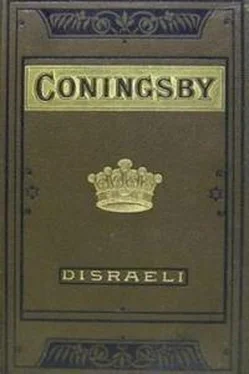
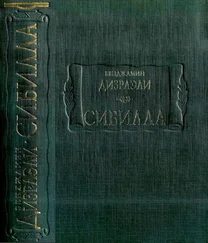
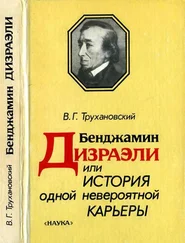
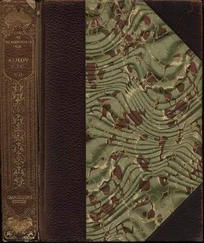

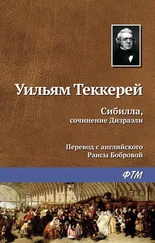
![Мелани Бенджамин - Госпожа отеля «Ритц» [litres]](/books/384861/melani-bendzhamin-gospozha-otelya-ritc-litres-thumb.webp)

